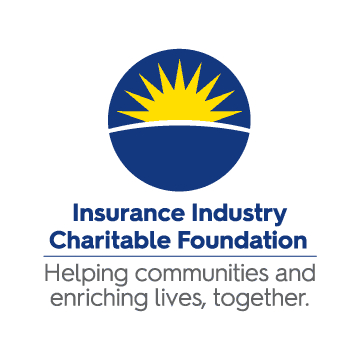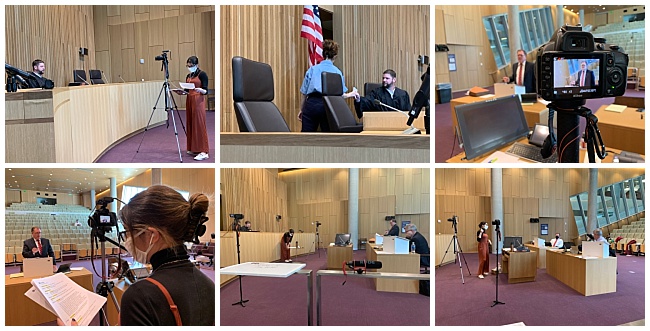| A recent survey of nearly 600 U.S.-based independent agents from Liberty Mutual and Safeco Insurance sought to understand how independent insurance agencies are evolving to meet new expectations. The results, published in the “Rise of the Digital Insurance Agency" report, found that digitally-savvy agencies grow an average of 60% more than their less digital counterparts.
See marketing materials from Trusted Choice here.
During the first quarter of 2021, commercial property & casualty rates saw an overall gain of 7%, according to MarketScout Corp., which reported umbrella, professional liability and D&O all saw double-digit increases. The best defense is a good offense, so talk with your customers now so they are not surprised at renewal.
Across the country, businesses are reopening in some fashion, but going back to work after months of operating from home will look very different. As you and your staff navigate returning to work during the pandemic, there are multiple issues to be considered as you balance the needs and concerns of your employees against those of your customers and clients.
Nearly 40% of U.S. motorists are somewhat or very concerned about cybersecurity and safety of connected and autonomous vehicles, according to a survey from Hartford Steam Boiler (HSB), a Munich Re division. Additionally, 35% said they feared a virus, hacking incident or other cyberattacks could damage or destroy a vehicle's data, software or operating systems.
Researchers compared the 50 states across the three tax types of state tax burdens — property taxes, individual income taxes, and sales and excise taxes — as a share of total personal income in the state and New York tops the list.
A panel of experts examine everything from SolarWinds, to the COVID-19 pandemic, to the best prevention methods and tips for you.
The firming of the cyber market is having a big impact you and your customers. Not only do you to work harder to secure adequate coverage for your clients, but you also have to educate yourself and continue to develop your technical skillsets around cybersecurity controls and best-practice cyber risk mitigation. This is vital if you want to differentiate yourself in a hardening market.
The Biden administration appears poised to reinstate masking and other social distancing rules for recalcitrant governors — at least in the workplace. The federal Occupational Safety and Health Administration is preparing to issue new short-term regulations to protect workers from catching COVID-19 on the job, according to lawyers tracking the agency's efforts.
The Federal Emergency Management Agency unveiled the details of an overhaul to the National Flood Insurance Program, the initiative's first major update in 50 years. Most homeowners in the program will have lower or stable premiums, but roughly 11% of homes — largely the highest value ones — will see increases in premiums of at least $10 a month. Those could continue to rise until they reach a cap of $12,000 a year.
New York Federal has denied an insurer's dismissal of a COVID-19 coverage case, issuing a favorable decision for an insured. In what stands as the first win for policyholders in a New York COVID-19 insurance coverage case, the ruling found that the contamination exclusion was ambiguous and that the Court lacked a sufficiently developed factual record to rule on whether the Loss of Use exclusion encompassed the insured's losses.
While COVID-19 was top of mind for everyone in 2020, dominating both our personal and our professional lives, it was not alone in determining the health of the global insurance industry. The industry had to deal with a very costly natural catastrophe year, combined with low interest rates, years of soft pricing, and certain types of social inflation or expectations.
CNA Insurance expects its corporate email and other functions to be fully operational soon as it continues its recovery efforts following a March 21 cyber attack. The company said it is now safe to conduct business and communicate with the insurer via email.
Zurich Insurance and Farmers Exchanges have closed on buying MetLife's U.S. property/casualty business for $3.94 billion. The business acquired includes 2.4 million MetLife Auto & Home policies, $3.6 billion of net written premiums (2019) and 3,500 employees, according to Zurich. The deal provides the Farmers brand an opportunity to gain more of a national presence and strengthen its position a major personal lines carriers in the U.S.
|
|  Today is April 15, the date by which all entities regulated by the New York State Department of Financial Services must submit a statement to the department, certifying that they complied with the state's financial services cybersecurity requirements regulation last year. It is therefore fitting that I'm writing about two enforcement actions the department recently announced. They give some clues as to the approach the department is taking toward enforcing the regulation. Today is April 15, the date by which all entities regulated by the New York State Department of Financial Services must submit a statement to the department, certifying that they complied with the state's financial services cybersecurity requirements regulation last year. It is therefore fitting that I'm writing about two enforcement actions the department recently announced. They give some clues as to the approach the department is taking toward enforcing the regulation.
Neither action involved an insurance agency or brokerage:
Two very different organizations with millions of dollars in assets. Their day-to-day operations are far removed from those of the typical Big I New York member who has eight or fewer employees and revenues that are a fraction of what these businesses take in. Still, if you're an insurance agency that has struggeled to meet the regulation's requirements (and you are,) here are a couple of lessons to take away from these two actions.
If you experience a serious cybersecurity event, you
must report it. Here's what DFS reported about Residential Mortgage Services: A July 2020 examination uncovered evidence that RMS had been the subject of a cyber breach in 2019 which had not been reported to DFS, in violation of Part 500.17 of the Cybersecurity Regulation. The breach involved unauthorized access to the email account of an RMS employee with access to a significant amount of sensitive personal data of mortgage loan applicants. Until prompted to do so by DFS in 2020, RMS failed to conduct an investigation and identify the consumer data exposed.
Similarly, for National Securities:
The Department’s investigation uncovered evidence that National Securities had been the subject of four cyber breaches between 2018 and 2020, two of which had not been reported to the Department as mandated by the Cybersecurity Regulation.
... as promptly as possible but in no event later than 72 hours from a determination that a cybersecurity event has occurred that is either of the following: (1) cybersecurity events impacting the covered entity of which notice is required to be provided to any government body, self-regulatory agency or any other supervisory body; or (2) cybersecurity events that have a reasonable likelihood of materially harming any material part of the normal operation(s) of the covered entity.
The events these two businesses experienced exposed consumers' private information. New York law requires such exposures to be reported to law enforcement. Accordingly, the organizations had three days to notify DFS, but the actual reports happened a year or more after the fact. Collectively, they are paying $4.5 million for those mistakes.
Lesson to insurance agents and brokers: If you suffer a cybersecurity event that is either of the two types listed above, 'fess up to it, and fast.
If you've violated one requirement, you've likely violated others, and DFS will look for those violations. Returning to the news release about Residential Mortgage Services: The findings of the exam concluded RMS violated the DFS Cybersecurity Regulation in failing to timely report the breach, and that
RMS failed to have a comprehensive Cybersecurity Risk Assessment, another requirement of the Cybersecurity Regulation.
Regarding National Securities:
The investigation uncovered, among other things, that National Securities violated the DFS Cybersecurity Regulation in failing to implement Multi-Factor Authentication (“MFA”), and without implementing reasonably equivalent or more secure access controls approved in writing by the Company’s Chief Information Security Officer. Further, National Securities falsely certified compliance with the Cybersecurity Regulation for the calendar year 2018, due to the fact that MFA was not fully implemented. Once DFS looked into the RMS breach, they found that the lender hadn't done a risk assessment (required by
Section 500.9) and penalized them accordingly. Investigating the National Securities breaches, DFS found that they had not implemented multi-factor authentication, which
they were required to do, and therefore their annual certification of compliance was false. One violation leads to another which leads to another, and next thing you know you're giving $3 million to the New York State government. Side note: Insurance agencies and brokerages that qualify for the limited exemption are exempt from having to implement multi-factor authentication. However, in coversations, I've heard more than one cybersecurity consultant advise that small organizations implement it anyway. It's one more line of defense to prevent bad actors from infiltrating your computer networks. Big I New York has used it for years; I had to use it this morning in order to write this blog post. Returning to the lesson: All the requirements are important. If you don't comply with one, and it leads to a serious event, you should expect that DFS will discover it and penalize you for all violations. From my phone conversations, I have gathered that there are still some agencies with misconceptions about the limited exemption under this regulation. A limited exemption is just that - you are exempt from a limited number of requirements. However, even if you have only two employees and $100,000 in revenue, you must still: - Perform an assessment of the cyber risks facing your agency
- Implement a cybersecurity program based on that assessment
- Develop written policies and procedures that everyone in your agency must follow to reduce the chances of a cybersecurity event occurring
- Include limits on who within the agency can access non-public information in those policies and procedures
- Include rules for how long to keep non-public information and how to securely dispose of it in your policies and procedures
- Include policies and procedures to verify that any third-party service providers who have access to your network or its data have appropriate cybersecurity measures in place
- Notify the DFS of a serious cybersecurity event and certify to them each year between Jan. 1 and April 15 that you complied with the requirements the previous year.
There is no such thing as an agency that is "exempt" from the regulation. You may be partially exempt, but you must still meet these requirements.
The DFS is actively enforcing this regulation's requirements. I have yet to hear of an agency being the subject of enforcement actions, but I'm not privy to everything the department is doing. I can't stress it enough: Cybersecurity is an essential part of doing business today, whether your business is an insurance agency or a gym. These requirements are to be taken seriously. Learn from the painful lessons these two organizations learned. Protect your clients, your businesses, and your balance sheets.
|
| By Sue Keegan, AIC, MBA, Learning & Development Manager
3 ThingsRead this new blog post from Tim regarding the DFS updating a cyber-alert in the wake of fraudulently-issued insurance policies.
Our website is crammed full with so much good information. If you haven’t checked out the cybersecurity portion of our website, I highly recommend you do so. Remember, annual certification of compliance is due no later than April 15, 2021.
2 Ideas
Go Big 2021 – Register for it NOW!
1 Question
I am very excited that we will have some live music opportunities this summer. Do you remember the first concert you ever went to? My first concert was Culture Club in the spring of 1984 at Richfield Coliseum in Akron, Ohio. Let me know your first concert via email at skeegan@biginy.org or post in our Community. I feel a playlist coming on... |
| 
The New York Compensation Insurance Rating Board has announced the new construction payroll limitation for 2021. Effective July 1, 2021, insurers can apply a maximum of $1,594.57 per week for payroll when calculating Workers' Compensation insurance premiums.
New York insurance law limits the amount of payroll that insurers may apply when determining Workers' Comp premiums for employers in the construction industry. The limitation is a function of the state's average weekly wage and must be reset every year on July 1. The previous limitation was $1,450.17.
|
|  This week, the New York state leaders reached an agreement on a $212B state budget, the largest in the state's history. Ultimately, most of smaller policy provisions proposed by the Governor were removed, but many “big picture" policy pieces made the final cut. Here is a summary of the key pieces affecting you and your customers: This week, the New York state leaders reached an agreement on a $212B state budget, the largest in the state's history. Ultimately, most of smaller policy provisions proposed by the Governor were removed, but many “big picture" policy pieces made the final cut. Here is a summary of the key pieces affecting you and your customers:
No-Fault Anti-Fraud (Rejected): Big I NY supported the Governor's proposal to more easily and aggressively prosecute medical providers (“medical mills") that commit no-fault fraud, and lobbied members of the legislature on this issue during Independent Agents Advocacy Week. Unfortunately, this proposal was not included in the final budget. We are told this issue will be addressed post-budget. Electronic Notarization and Electronic Service of Process (Rejected): Big I NY supported provisions in the Governor's budget to allow for electronic notarization and service of legal process. These provisions were eliminated from the final budget.
Tax Increases for Businesses and High Earners (Included): The final budget raises the corporate franchise tax for three years on businesses earning $5M or more from 6.5% to 7.25%. The capital base tax is also reinstated at .1875%. Marginal tax rates on individuals are increased for those earning $1M, $5-25M, and $25M+. Big I NY joined the National Federation of Independent Businesses (NFIB) and a broad based coalition of business interests in calling on the legislature to reject any business tax increases. We are extremely disappointed the state has adopted a multi-billion dollar tax increase, particularly given that they are unnecessary in light of substantial new federal assistance. Small Business Relief (Included): The final budget includes $1B in small business assistance, including $800M in small business grants and $200M in tax credits. The budget also includes a $35M return to work credit for restaurants. Big I NY met with state lawmakers and urged them to support this critical assistance package as part of NFIB's Small Business Day in March. Insurer Tax Surcharge: (Rejected) The Assembly advanced a proposal to add an 18% surcharge to taxes paid by NY insurers. We were concerned that this could result in higher premiums, and fortunately, this proposal was rejected in the final budget. Ultimately, this year's budget is a mixed bag. We are encouraged that neither the Governor nor legislature advanced harmful increases on insurance law fines and penalties as we have seen in past years, and the small business relief is desperately needed. However, the corporate and individual tax hikes will worsen the state's already dismal business climate and threaten to accelerate the ongoing population decline.
Contact Scott Hobson with questions
|
|  We are happy to announce that the New York State Department of Financial Services (DFS) has resolved a problem that prevented some New York licensed agents and brokers from submitting the appropriate cybersecurity notice of exemption form. The DFS addressed the issue after Big I New York contacted them about it. We are happy to announce that the New York State Department of Financial Services (DFS) has resolved a problem that prevented some New York licensed agents and brokers from submitting the appropriate cybersecurity notice of exemption form. The DFS addressed the issue after Big I New York contacted them about it.
New York's Cybersecurity Requirements For Financial Services Companies regulation, 23 NYCRR 500, makes certain companies partially exempt from its requirements and certain individuals completely exempt. Those companies and individuals must submit a Notice of Exemption on the DFS website so that the department's computer system is aware of the exemptions. Failure to do so will lead the department's system to believe that these licenseholders are complying with all 23 of the regulation's sections.
Licensed employees, agents, representatives or designees of a licensed business entity are completely exempt from the requirements to the extent they are covered by that entity's cybersecurity program. The regulation's text does not require the covering entity to be a company - it could be an individual such as a sole proprietorship. Some agencies, particularly those who were once captives but are now independent, have not formed companies. Regardless, the DFS computer system was rejecting Notice of Exemption filings from employees when they entered the license number of a person in the form, rather than that of a company. After hearing about this problem from our members, Big I New York emailed a contact at DFS and held a conference call with him on March 26 to explain the problem. We received assurances that he would address it, and on April 7 he informed us that the problem had been resolved. Phone conversations with two agencies who were having this problem confirmed that the system is now working properly. If you are an agency organized as a sole proprietorship, and your employees have had difficulty submitting a Notice of Exemption citing Section 500.19(b) as the reason for the exemption, we encourage them to try again. They should receive a different result now.
|
| During its current legislative session, New York is considering a proposed privacy bill that would greatly enhance consumer privacy rights, increase business obligations and create new litigation/enforcement exposure.
With the vaccine continuing to roll out across the country, you may have questions besides if you should or shouldn't require your employees to be vaccinated, like - do vaccinated employees need masks? Should we track who has been vaccinated? Learn more about this important considerations as you re-open your agency.
One-quarter of independent insurance agencies report COVID-19 had a significant impact on their operations, revenue and commercial lines customer base, according to the 2020 Agency Universe Study COVID-19 Impact Summary.
COVID-19 is not in the rearview mirror yet and we know many of you continue to struggle with paperless processes, remote relationship building and digital communications. It can feel difficult to keep people at the center of business when most people are secluded at home and avoiding in-person interactions.
Still, it is never too late for you to modernize their business and recommit to building stronger relationships. Three insurtech trends are critical to adapting to this moment and thriving.
Legislation requiring certain insurers to disclose to current and future policyholders whether their business interruption policies cover pandemics was approved by the New Jersey Assembly. Several other states are also considering bills seeking to create business interruption coverage, including New York, Oregon, Pennsylvania, and Rhode Island.
Your agency was forced to adopt and adapt to technology at a head-spinning pace to remote work as a result of COVID-19. Will you and your staff return to the office, or will business as usual now include some form of a virtual workforce? Get some tips from work-at-home experts at WAHVE. Learn more about what WAHVE can offer you here.
Future One, a collaboration of the Big “I" and leading independent agency companies, has released key findings from the recently completed Agency Universe Study, hailed as the most comprehensive look at the independent agency system. The study shows that the number of independent insurance agencies has remained stable and business conditions continue to improve.
How can you help your insureds move into adopting more standalone cyber coverage? Learn the key challenges and possible solutions to help you place more cyber risk and better protect your clients. See Big I NY's cyber insurance.
Find out why these cyber carriers can help you meet the needs of your customers and their cyber exposures.
If the National Association of Insurance Commissioners doesn't act this year to correct systemic racial bias in insurance ratemaking and other processes, Congress may pass anti-discrimination laws that apply to insurance, a consumer advocate said earlier this month.
A new study released by Global Disability Inclusion, in collaboration with Mercer, found that disabled workers are less engaged and rank their work experiences lower than workers without disabilities.
The ten-year study underlines the challenges faced by disabled people, who represent 15% of the population. The project collected more than 12 million responses from workers around the world and found an “engagement gap" that was significant in a range of areas.
What sort of workplace experience would you provide for a disabled worker in your agency?
From career and leadership strategies to beyond, the Women in Insurance Summit promises a day of inspiration and empowerment on May 25, 2021. The agenda is full of industry presentations and panel discussions featuring speakers from top companies. It will provide insights and ideas to advance equality for all women in the profession.
CNA Central and cnasurety.com, are back online. This means that you can now get quotes for CNA's small business through CNA Central and surety agents can access cnasurety.com to issue surety bonds through the online application.
As president and CEO of ACORD (Association for Cooperative Operations Research and Development) - the global standards-setting body for the insurance and related financial services industries – Pieroni has a unique perspective on the insurance industry, based on ACORD's 36,000+ members.
|
| 
The insurance industry is dedicated to assisting people in times of need. As such, the industry is uniquely suited to be a philanthropic leader, adapting its skill-set to charitable endeavors. On behalf of the Insurance Industry Charitable Foundation, Big I New York is pleased to invite your company or agency to nominate a charitable organization for a local grant.
IICF helps communities and enriches lives by combining the collective strengths of the industry to provide grants, volunteer service, and leadership.
In an effort to expand the reach of IICF across communities in New York, New Jersey and Connecticut, the foundation is offering 10 local grants in the amount of $2,500. All charities awarded a grant must be sponsored by an insurance entity, so this your chance to nominate a worthy organization your company or agency supports or is familiar with in your community.
The application process is simple. Please communicate with your chosen nonprofit that you are nominating them to apply and ask the charity you are sponsoring to complete this application. They must provide the requested corroborating documentation and submit all items electronically to Lauren Pincus at lpincus@iicf.com by 5:00 p.m. on Friday May 28, 2021. Additional information is detailed in the local grant guidelines. We appreciate your help in recognizing outstanding charities in New York, New Jersey and Connecticut.
Formed in 1994, the Insurance Industry Charitable Foundation (IICF) is a 501(c)(3) tax exempt public charity funded and directed by insurance industry professionals representing a broad spectrum of the industry. Since its inception, IICF has contributed over $40 million in local community grants, over 300,000 hours of volunteer service, and the leadership of over 100,000 industry volunteers. |
| By Jim Lombardo, CPCU, AAI, AIM, MBA, AVP of Learning & Development Your support staff at Big I NY has been having a blast these last few days filming the 2021 Annual E+O Seminars! There was a fire at a golf course where the club house and its contents were destroyed. Oh, I sure hope the agent placed the right coverage. I hope the client communicated clearly. I hope the judge understands insurance, and I hope the lawyers didn't get their degrees on the back of a cereal box. It has been fun being at the mock court room on the Syracuse University campus as well as seeing our headquarters transform into an independent insurance agent's office. We are excited to see the finished project, and we know you will enjoy it as well. You will even have a chance to be the jury and weigh in with your vote as to who is at fault! Mark your calendars now for one of the “show dates." - May 18
- May 26
- June 7
- September 14
- October 14
Here are some shots from behind the scenes.
 Stay tuned for coming attractions and check our website regularly for updates. Stay tuned for coming attractions and check our website regularly for updates.
In the meantime, here are some upcoming classes this month to check out.
15inONE CE Program: E&O
ABEN When Words Collide…Insurance Coverage & Claim Disputes ABEN Premium Auditing – What Every Agent Must Know
|
|  This week, Senator Neil Breslin, Chair of the Senate Insurance Committee, introduced legislation created by Big I NY to make the auto photo inspection voluntary at the discretion of an insurance carrier. This is a pro-customer measure to eliminate an unnecessary burden to the process of obtaining comp and collision coverage. Modern technology has rendered the photo inspection virtually useless (carriers tell us they don't even use them). It can be a major hassle for the insured, who risks losing coverage if the inspection isn't completed in time. Big I NY members sent over 220 emails to their state senators, calling on them to sign on to the bill. This week, Senator Neil Breslin, Chair of the Senate Insurance Committee, introduced legislation created by Big I NY to make the auto photo inspection voluntary at the discretion of an insurance carrier. This is a pro-customer measure to eliminate an unnecessary burden to the process of obtaining comp and collision coverage. Modern technology has rendered the photo inspection virtually useless (carriers tell us they don't even use them). It can be a major hassle for the insured, who risks losing coverage if the inspection isn't completed in time. Big I NY members sent over 220 emails to their state senators, calling on them to sign on to the bill.
Effective April 1, New York has legalized adult-use recreational cannabis, becoming the 15th state in the nation to do so. Personal consumption and possession is immediately legalized, and in the coming months, a regulatory framework will be put in place to govern the sale and distribution of cannabis. Big I NY will carefully monitor this issue for impacts on our members and their customers. Big I NY joined a broad based group of employers, insurers, and labor organizations in calling on the legislature to reject a harmful “pay and pursue" proposal. We believe that by requiring payment before determining whether the service or treatment was medically necessary, this proposal will make it more difficult to determine whether care was appropriate and creates an incentive for ordering unnecessary procedures and conducting duplicative tests that will drive up costs for New Yorkers. Big I NY also joined allies in the small business community in opposing A.2681(Reyes), which would, among other concerns, implement a new and burdensome regulatory framework for businesses of every size, create a new private right of action which will expose employers to predatory lawsuits, and mandates the organization of “workplace health and safety committees" with ambiguous functions, purposes, and authority. The combination of these burdens will create significant new costs during a period of unprecedented economic distress. Further, this bill makes no distinction between large corporate entities and the small, local businesses that have suffered specific duress during the pandemic. The state budget was due by April 1. As of right now no budget has been voted on, however we hear that a final deal is near. Contact Scott Hobson with any questions.
|
Follow javascript: SP.SOD.executeFunc('followingcommon.js', 'FollowDoc', function() { FollowDoc('{ListId}', {ItemId}); }); 0x0 0x0 ContentType 0x01 1100 Item Audit Detail /_layouts/15/images/GORTL.GIF /newsfeed/_layouts/15/AuditingLog/ItemAudit.aspx?ItemId={ItemId}&ListId={ListId} 0x0 0x40000000 ContentType 0x01 300 Compliance Details javascript:if (typeof CalloutManager !== 'undefined' && Boolean(CalloutManager) && Boolean(CalloutManager.closeAll)) CalloutManager.closeAll(); commonShowModalDialog('{SiteUrl}'+
'/_layouts/15/itemexpiration.aspx'
+'?ID={ItemId}&List={ListId}', 'center:1;dialogHeight:500px;dialogWidth:500px;resizable:yes;status:no;location:no;menubar:no;help:no', function GotoPageAfterClose(pageid){if(pageid == 'hold') {STSNavigate(unescape(decodeURI('{SiteUrl}'))+
'/_layouts/15/hold.aspx'
+'?ID={ItemId}&List={ListId}'); return false;} if(pageid == 'audit') {STSNavigate(unescape(decodeURI('{SiteUrl}'))+
'/_layouts/15/Reporting.aspx'
+'?Category=Auditing&backtype=item&ID={ItemId}&List={ListId}'); return false;} if(pageid == 'config') {STSNavigate(unescape(decodeURI('{SiteUrl}'))+
'/_layouts/15/expirationconfig.aspx'
+'?ID={ItemId}&List={ListId}'); return false;}}, null); 0x0 0x1 ContentType 0x01 898
|
|
|